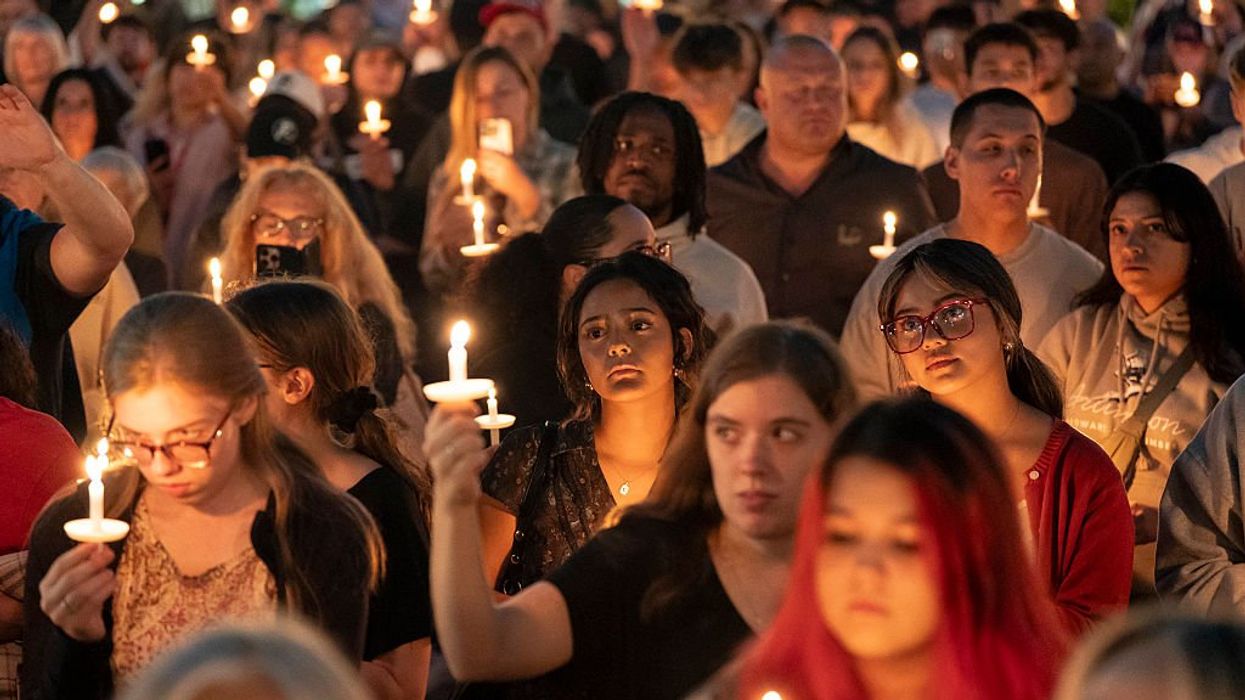Condemning the abhorrent assassination of Christian nationalist leader Charlie Kirk is fundamental and insufficient.
The only way to pull back from the heightening potentials for political violence in America is to mount a concerted, multifaceted campaign against it – and the hyperpolarized intolerance that is producing it. That will require leadership of politicians, religious and civic leaders, as well as influencers, and entertainment and sports celebrities.
I’ve seen the horrible effects of political violence in Africa, Asia, the Balkans, and Latin America as I worked with democracy activists in multiple countries, and it is clear that if the Americans do not act now, violence on a greater scale will come.
Utah’s Republican Governor Spencer Cox, speaking at a press conference immediately after Kirk’s murder, put it dramatically: “We just need every single person in this country to think about where we are and where we want to be, to ask ourselves: Is this it? Is this what 250 years have wrought on us? I pray that that’s not the case.”
No matter what one thinks of the anti-immigrant, anti-choice, anti-gay, and related doctrine aimed at “saving Western civilization” that Charile Kirk professed, his murder is a tragedy. No matter how strongly one believes in that doctrine or in its antithesis, there is no justification for his or any other political killing. That is not just a matter of individual soul-searching; it is a matter of the political culture that we create and demands we make as a society.
Governor Cox referenced the political killings of a Minnesota Democratic state legislator and her husband and the violent attempt against Pennsylvania’s Democratic Governor earlier this year, as well as the attempted assassination of President Trump at a 2024 campaign rally. Sadly, they are not the only such events over the last few years that must be seen along with innumerable threats against individuals and political gatherings. Plus, the deadly January 6, 2021, assault on the U.S. Capitol casts an indelible shadow over our political landscape.
We must all ask what political violence could be next and what must be done to prevent it.
Unfortunately, unlike past presidents who called for national unity in the face of political violence, President Trump and key members of his administration, immediately following Charlie Kirk’s murder, fostered further division, blaming the left for the killing and threatening a political crackdown. Social media posts calling for arresting elected Democrats and banning the party and – even more dramatically declaring “war” – feed off such crackdown threats even as disgusting celebratory posts about Kirk’s murder feed anger. Antidotes to intolerance and hatred are urgently needed instead.
Governor Cox, at a press conference on September 12, calling for sanity over violence, offered a stark choice:
"We can return violence with fire and violence. We can return hate with hate. And that's the problem with political violence, is it metastasizes, because we can always point the finger at the other side, and at some point we have to find an off-ramp, or it's going to get much, much worse. These are choices that we can make."
Thus far, those who exert outsized cultural influence in the U.S. have remained silent or spoken once and then moved on. If we are to ramp down the heightened potentials for large-scale political violence, let alone find an off-ramp, Americans have to raise our voices now and call on political, religious, and cultural leaders to do so.
Even more, they and we need to sustain a chorus that pulls away from violence – otherwise, its attraction may well become much stronger. So, sing out no matter where you stand politically, and demand that leaders raise their voices from the mountaintops.
Pat Merloe provides strategic advice to groups focused on democracy and trustworthy elections in the U.S. and internationally. He is a long-time resident of Washington, D.C.




















Trump & Hegseth gave Mark Kelly a huge 2028 gift